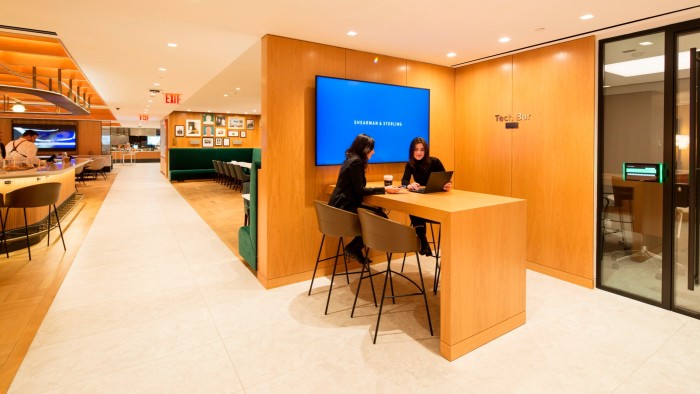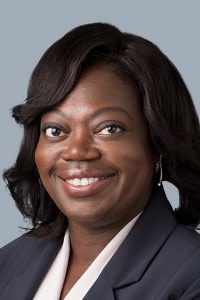How to find, keep and reward legal staff

Roula Khalaf, Editor of the FT, selects her favourite stories in this weekly newsletter.
Jon Van Gorp is unused to anonymity. The asset-backed securities expert, who rose to become chair of the 140-year-old prestigious law firm Mayer Brown, is well known in the legal heartlands of New York and Chicago.
But, when tasked with opening a new office for the firm in Salt Lake City this year, he found that neither his name, nor his employer’s brand, resonated quite as widely in the foothills of the Rocky Mountains when it came to hiring.
“We even put up a billboard,” Van Gorp says of his efforts in Utah. Soon, however, he discovered that the perceived benefits of Mayer Brown’s culture — which Van Gorp says emphasises collaboration over cut-throat competition between lawyers — was a more effective recruiting tool than the size of the adverts or the pay packages.
“Paying people at the top of the market is a necessary price of admission to compete,” says Van Gorp, who was elected chair of the firm in 2021. “But it is not a differentiator.”
More on FT.com: Best practice case studies
Read the FT Innovative Lawyers North America ‘Best practice case studies’, which showcase the standout innovations made for and by people working in the legal sector:
As the legal industry braces itself for the first prolonged downturn in more than a decade, measures such as training, hybrid working and so-called wellness programmes are becoming the key to attracting and retaining staff, according to senior managers.
“There is always a war for top talent, regardless of the market conditions, because great people usually have options and money alone isn’t enough to retain them anymore,” observes Geline Midouin, chief people officer at New York firm Shearman & Sterling.
Her firm has introduced several measures — including an on-site nurse practitioner who can fill out employee prescriptions, and relaxation pods in which fatigued lawyers can enjoy a few moments of undisturbed repose before returning to work.
As part of its efforts to retain staff, Shearman & Sterling has also redesigned its Manhattan offices to include amenities such as a “tech bar” in its café where lawyers can get their devices fixed while sipping their cappuccinos.

Among the innovations in the 340,000 sq ft space are Covid-aware touch-free doors and “equally apportioned offices”, putting an end to cubicle envy between colleagues of the same seniority. “There is a realisation that the pandemic has impacted people in many ways,” says Midouin. “We are shifting to a time when it is not just about the money; it is about the culture”.
Over the past two years, even the more fiscally conservative firms have been forced to offer higher salaries in an overheating labour market, with six-figure sign-on bonuses and accelerated promotions increasingly common among the largest US companies.
A law introduced in the state of New York in November, which dictates that employers disclose proposed salaries in job postings, has made it easier for junior applicants to compare pay at different firms. The regulation, which mandates that firms provide “a good faith salary range for every job, promotion, and transfer opportunity advertised”, has already set ablaze the messaging boards on websites frequented by law graduates.
However, the pandemic also seems to have accelerated attrition rates among associates in the North American market.

Data from the NALP Foundation, which has been monitoring retention at law firms for more than two decades, found that associate attrition reached an all-time high of 26 per cent in 2021 — a 10 per cent increase from the year before. That number rose to 34 per cent for associates of colour.
Rather than hanging on until they make partner status, many younger lawyers choose where they seek employment based on the working environment. For example, a survey by the American Bar Association earlier this year found that more than 40 per cent of lawyers with fewer than 10 years of practice would jump ship to a rival firm if their ability to work remotely were restricted.
Many existing perks are designed to help staff be present in the office — such as Kirkland & Ellis’s concierge service through which lawyers can get someone to run personal errands for them while they attend meetings.
Other offerings at the world’s largest law firm by revenue include “nutrition counselling, free food in the office to alleviate meal prep stress, transportation and parking subsidies,” says Kirkland director of wellbeing Robin Belleau. “All of these extra amenities help our people live supported, well-rounded lives,” she explains.
But, with remote work increasingly the norm, these schemes may not have the pull they once did. “We used to say 99 per cent of our assets walk out the door every night; now, they don’t walk in the door, so they’re all out the door every day,” Van Gorp acknowledged earlier this year. He admitted that “making this a place where people want to work when you’re not held together by bricks and mortar is a continual challenge”.
His tactics include a monthly internal podcast through which staff can keep track of company news and priorities, as well as an increase in training courses.
Van Gorp says staff are “looking for a certain amount of kindness and empathy” following the Covid pandemic. As the economic skies darken, a sense of security could be in yet higher demand. Already, some US firms have pushed back start dates for new associates or culled staff via performance reviews as global deal volumes fall back sharply.
“I view our role as broader than just providing someone a pay cheque”, he says.
“They want to know that somebody is in charge and it is going to be OK.”
Comments